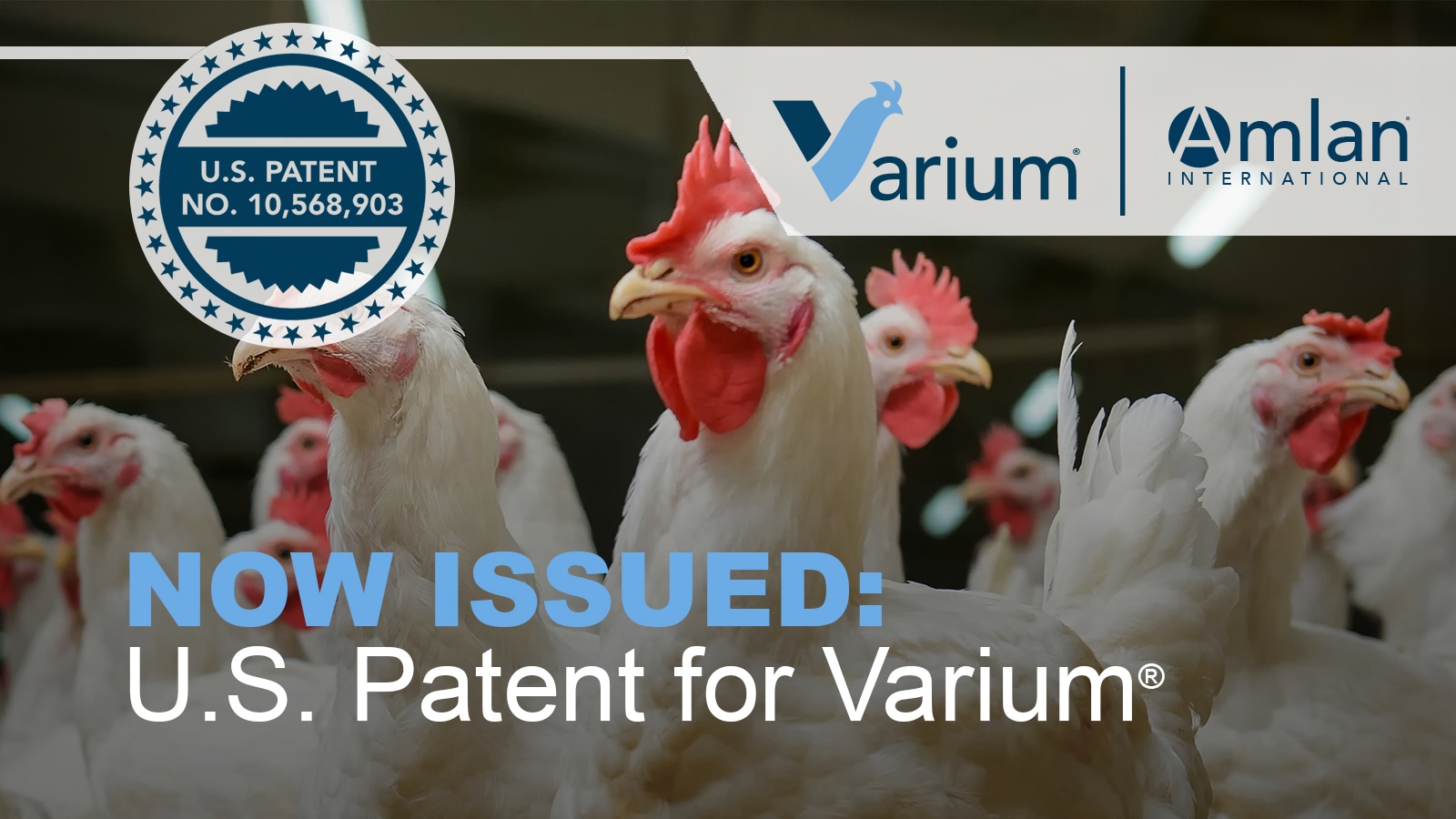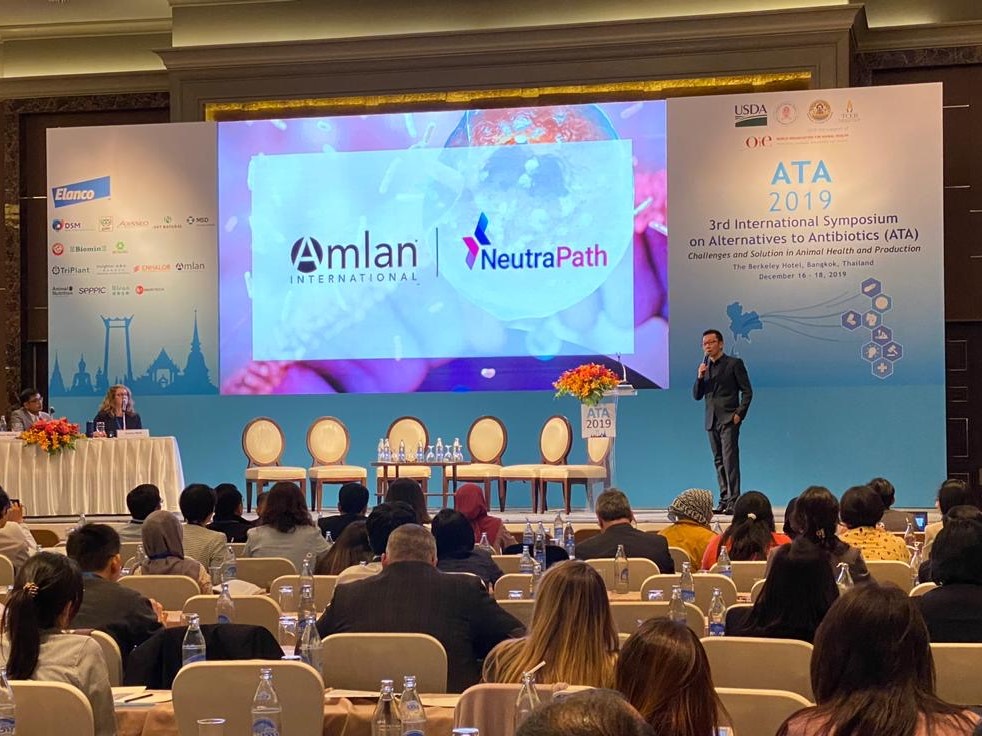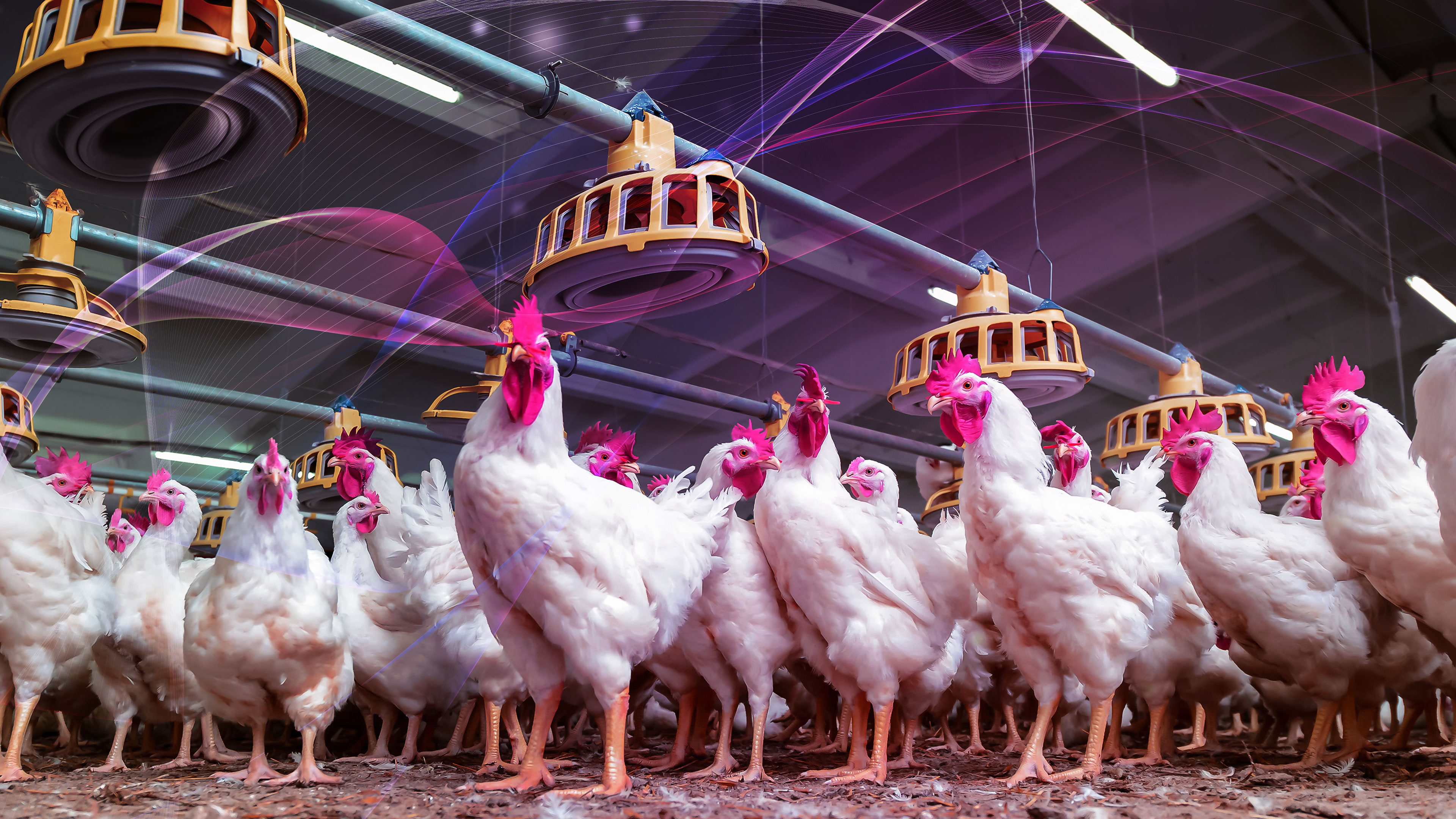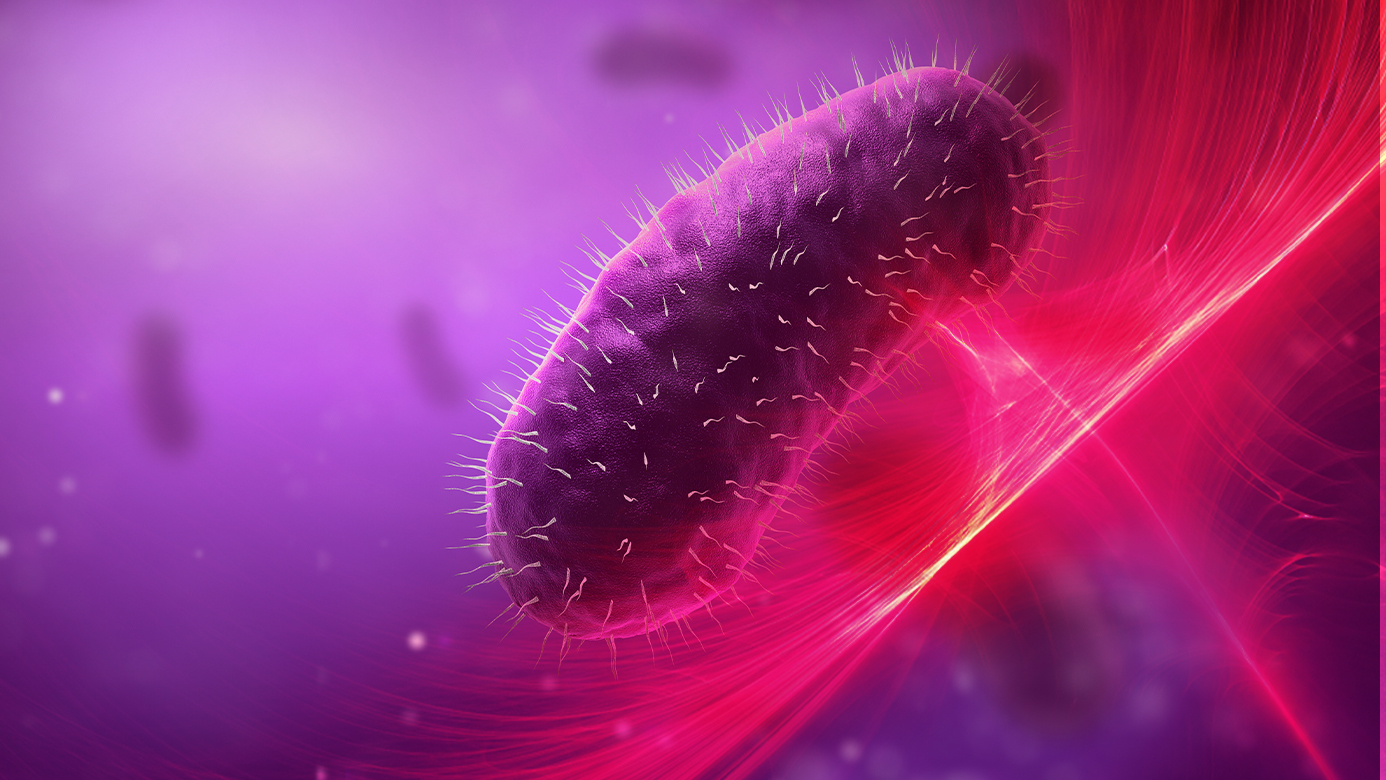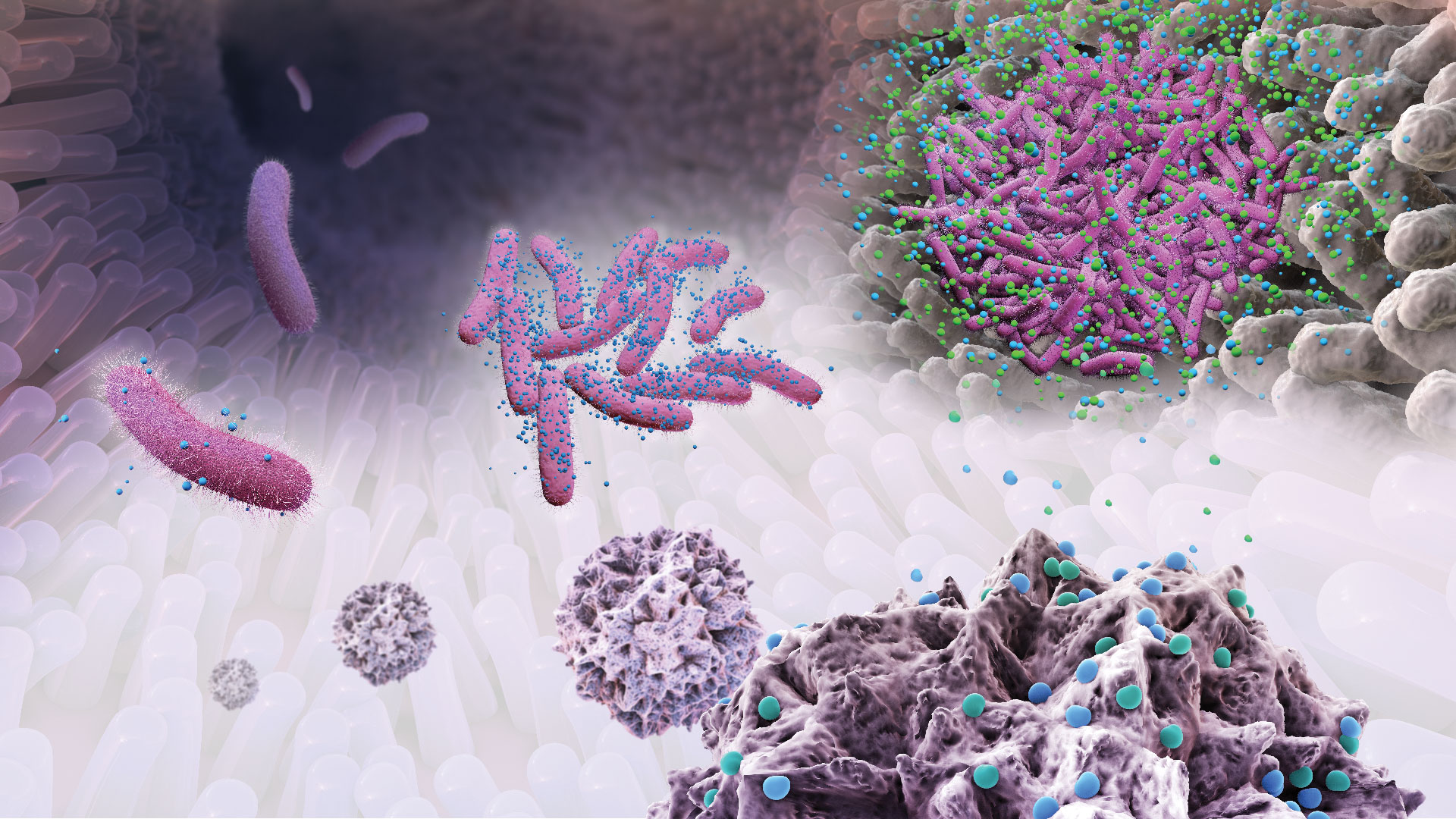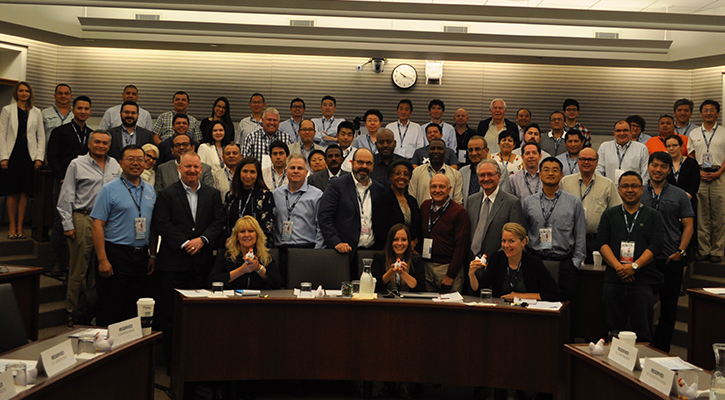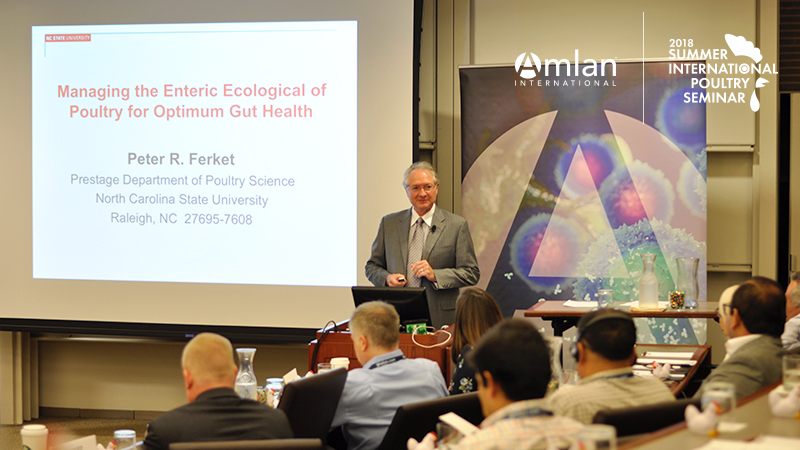FOR IMMEDIATE RELEASE – July 2, 2020
CHICAGO—July 2, 2020— Oil-Dri Corporation of America (NYSE: ODC), a leading manufacturer of sorbent minerals, parent company to Amlan International, today announced that the United States Patent and Trademark Office has issued U.S. Patent 10,568,903 entitled “Clay Product and Uses Thereof.” The patent covers two existing commercial products, Varium® for poultry and NeoPrime™ for swine, that are helping global animal protein producers thrive in an era of antibiotic-free production.
This patent provides a methodology for using a natural, mineral-based formula to mitigate the effects of exposure to pathogenic bacteria and the disease-causing toxins they produce, which damage gut health and function. Advancements in natural feed additives are helping to transform animal protein production by providing proven and reliable alternatives to in-feed antibiotics used to promote growth and productivity.
“The United States is the second country to issue a patent for this mineral-based technology and it validates the important role that minerals play in disrupting the cycle of intestinal disease,” said Daniel S. Jaffee, President and CEO of Oil-Dri Corporation of America. “When using Varium, for example, poultry integrators have eliminated the use of in-feed antibiotics to promote growth while maintaining production efficiencies and profitability. Our customers report they are growing healthier birds that are less stressed and have increased the marketability of their products through improved skin, liver and feet quality.”
“The market opportunity for natural alternatives to antibiotics is large and growing,” says Flemming L. Mahs, President of Amlan International, a Nevada corporation. “Market data indicates that within medicinal feed additives, anti-infectives are a $2.4 billion global market and usage has been declining as a result of changing consumer sentiment towards the use of antibiotics and regulatory restrictions limiting the use of antibiotics in animal protein production. Intestinal disease costs the global livestock industry more than $6 billion annually in economic loss and costs are rising as sub-therapeutic antibiotic use declines.”
Mineral-Based Technology
Unlike antibiotics, which are designed to kill bacteria, the patented technology includes a synergistic formula of three ingredients with distinct modes of action: (1) a surface-activated mineral that facilitates chemical binding of pathogenic intestinal bacteria and the disease-causing toxins they produce; (2) an immunomodulator that stimulates an animal’s innate immune system to naturally defend against disease; and (3) an energy source for the replenishment of intestinal epithelial cells that is essential for healthy gut function. Upon inclusion of this patented technology in animal feed, current producers have effectively eliminated the use of antibiotics to promote growth and have experienced equivalent or better outcomes.
Amlan International
Oil-Dri Corporation of America (NYSE: ODC), a Delaware corporation doing business as “Amlan International,” is a global leader in proven solutions that improve the intestinal health and productivity of livestock. Amlan has grown its product offering across the intestinal health and AGP-alternative market, driven largely by the research conducted at its laboratory campus in Vernon Hills, Illinois.
Amlan International sells animal health products outside of the United States. Product associated claims do not constitute medical claims and may differ based on government requirements. Product availability may vary by country.
###
MEDIA CONTACT
Reagan Culbertson
press@amlan.com
Share this post:
Follow us:
